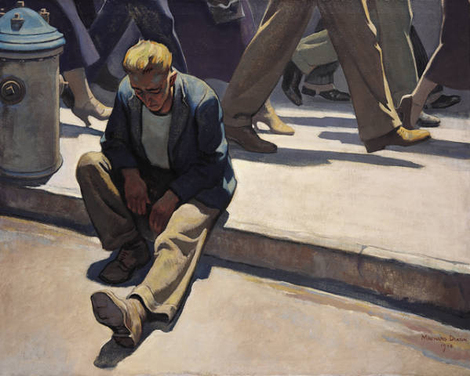
Yet it also reflects the pressure a government faces from those suffering the most to “do something,” to appear to have not forgotten the little guy. The book raises important questions about the role of government in economic downturns, arguing a classic conservative line that an activist, interventionist approach may prolong an economic downturn. It recognizes the value of public works efforts like the WPA, the foundations of which were laid in the Hoover administration resulting in important infrastructure development that both put money into and facilitated the economy. The book is basically an argument that the reason the Depression lasted so long was that the financial tinkering, taxation, and New Deal programs and over-reaching attacks on business “forgot” the people who made the country prosper. There are a variety of colorful figures, from Father Divine, a cult leader teaching Black self-sufficiency, John Llewellyn Lewis, a strong labor leader, David Lilienthal who headed up the Tennessee Valley Authority, a federalized effort to bring electric power to the South and “Bill” Wilson, the Wall Street alcoholic who founds Alcoholics Anonymous and in the 1930’s writes AA’s Big Book.


We meet the entrepreneurs and business people who find themselves on the wrong side of a government crusade against business, from Andrew Mellon to electrification pioneers Samuel Insull and Wendell Willkie, to the Schechter Brothers, kosher poultry wholesalers prosecuted for violating regulations of the National Recovery Act, and ultimately vindicated in court. There is the brain trust around Roosevelt, the “best and brightest” of his generation, who conceived of a variety of social and reform programs, mostly ineffectual: Harold Ickes, Raymond Moley, and Rex Tugwell. We are introduced to an impressive array of characters, many who recur as central figures throughout the account. Many accounts of the Depression have focused on the magnetic leadership of Franklin Roosevelt, creating work programs, declaring bank holidays, and seeking to give hope to the “forgotten man.” Amity Shlaes also considers various forgotten people, but asks the searching question of why the Depression lasted so long. Summary: An account of the Depression years, focusing on why the Depression lasted so long, and the impact it had on so many different kinds of “forgotten men” and women.


 0 kommentar(er)
0 kommentar(er)
